For the Record: The GOP's 2016ers on Russia, Ukraine and Crimea
Next Sunday, residents of Crimea, the semi-autonomous peninsular "republic" dangling atop the Black Sea, will cast ballots to secede, or not, from Ukraine and join the Russian Federation. The referendum will take place just short of two years after former Republican presidential candidate Mitt Romney said in a TV interview that he considered Moscow "our number one geopolitical foe."
Romney was roasted by the Obama campaign then and later by the president himself, who suggested during a fall debate that the GOP nominee was living in the past, that the 1980s were "calling to ask for their foreign policy back because, you know, the Cold War's been over for 20 years." In the aftermath of the original statement and again later in the campaign, Romney backed off, threading a narrow rhetorical needle that stitched the term "foe" to Russia and "threat" to Iran.
Today, with Russia's grip tightening on Crimea, Republicans and conservative commentators have been quick to flag their man's seemingly prescient diagnosis, a told-you-so moment to underline, if a bit late for Romney's benefit, President Obama's "weakness" in foreign policy matters. But as the partisans look back, politicians are looking forward, scrambling to plant their flags in the little bit of stable earth beneath those shifting pre-2016 political sands.
Here is what the Republican Party's Big Five potential presidential frontrunners, all seen in their CPAC finest, are saying now:
Sen. Ted Cruz
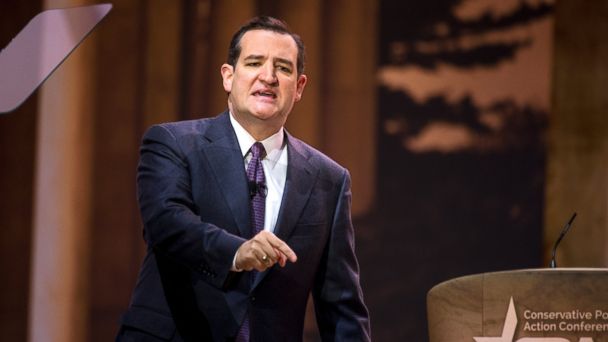
Like most Republican critics, Cruz first alleges that Putin drew confidence from President Obama's "weakness" in foreign crisis spots like Syria and the Middle East.
"When the protests began in Ukraine, the president should have stood unapologetically, emphatically for freedom," the Texan told ABC News Sunday. "When the United States doesn't speak for freedom, tyrants notice."
More specifically, he, like Sen. Rand Paul, R-Ky., and Rep. Paul Ryan, R-Wis., want the missile-defense program up and running again in Eastern Europe. Unlike Paul, he has not made clear who would pay for it. Speaking to POLITICO last week, Cruz left himself lots of wriggle room, saying, "I agree with [Sen.] John McCain that we should be a voice for freedom, but I agree with Rand Paul that we should be exceedingly reluctant to employ U.S. military force. That being said, we have a military for a reason - it is to protect our national security."
On the economic front, Cruz, 43, has proposed suspending Russia from the G-8, the World Trade Organization and, if it comes down to it, the U.N. Security Council. The latter two would pose considerable diplomatic and legal challenges. He has also criticized the Obama administration for backing down from enforcing a number of laws meant to bite back against Russian human rights abuses in exchange for help dealing with Syria and Iran.
Money quote: WATCH: "Putin is a KGB thug." - March 6
Sen. Rand Paul
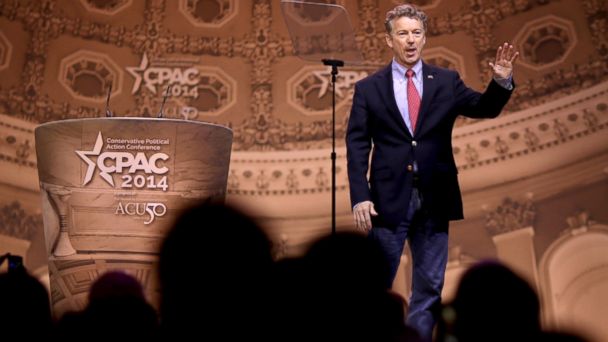
The Kentucky senator and CPAC darling has made a sharp right turn in the past two weeks. After being criticized for his assertion, in a Feb. 25 interview with The Washington Post, that "some on our side are so stuck in the Cold War-era that they want to tweak Russia all the time and I don't think that is a good idea. … I'm not excited about saying, 'Hey, let's put the Ukraine in NATO' to rub Russia's nose in it," Paul has taken a more assertive tack.
Where Paul, 51, once advocated for "a respectful relationship" with Russia, he wrote in an op-ed Monday that if the "occupation" of Ukraine - Crimea, specifically - continued, the United States should:
- "Condemn" and "isolate" the Russians
- Pursue "economic sanctions and visa bans"
- "Aggressively market and export America's vast natural gas resources to Europe" (cutting European dependence on Russia)
- "Immediately remove every obstacle or current ban blocking the export of American oil and gas to Europe" (same reason)
- "Support immediate construction of the Keystone Pipeline" (same reason)
- "Suspend American loans and aid to Ukraine because these could have the counterproductive effect of rewarding Russia (Ukraine owes Russia lots of money)
- "Suspend participation in this summer's G-8 summit" and lead a boycott (the power powwow will take place, maybe, in Sochi)
- Kick Russia out of the G-8 permanently
- "Reinstitute the missile-defense shields President Obama abandoned in 2009 in Poland and the Czech Republic (but only if Europe pays for it)
In short, Paul supports any punitive action short of sending in combat troops.
Money quote: "But let me be clear: If I were president, I wouldn't let Vladimir Putin get away with it." - USA Today, March 9
Sen. Marco Rubio
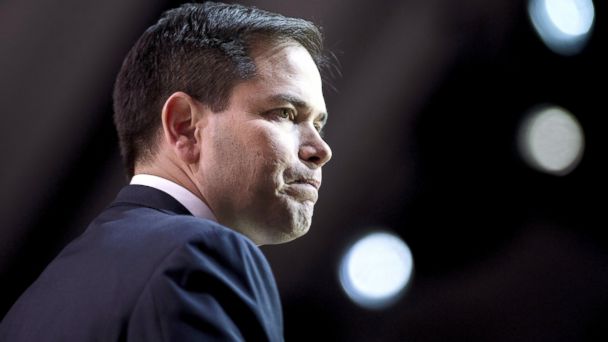
It has been a trying eleven months for the Florida Republican. On April 17, he and his bipartisan "Gang of 8? introduced a comprehensive immigration bill. For Rubio, then described as a "Tea Party favorite," it was a huge gamble, but one some advisers and analysts concluded could swing the Latino vote back into play in the coming election. By the fall, Rubio had cashed out, authoring a flip-flop as comprehensive as the bill he originally backed.
Mired in a post-immigration funk, Rubio, 42, has turned to foreign policy to re-establish some of his conservative creds. He has advocated for more open engagement and aid with opposition leaders in Venezuela and has gone at President Obama's Russia policy with hammer and tongs. At CPAC, and after, he has struck out hard against Sen. Paul, telling the New York Times, "There are forces within our party, there have always been in American politics, that basically say, 'Who cares what happens everywhere else? Just mind our own business.'" Coincidentally or not, Paul released his unusually aggressive prescription for the Ukrainian crisis days later.
On March 4, two days before the speech, Rubio and Rep. Tom Cotton, an Arkansas Republican, wrote in an op-ed that continued Russian intransigence in the region should lead President Obama to kick off a trade war with Moscow and work to get the former Soviet satellite nation of Georgia into NATO.
But most pointedly, Rubio and Cotton warned that inaction could lead to further Russian aggressions.
"How should our friends in Vilnius, [Lithuania], Riga, [Latvia], or Tallinn, [Estonia] take Russian rhetoric about the need to 'protect' ethnic Russians in Ukraine when they, too, have significant populations of ethnic Russians living in their countries?" they asked. Putin has defended the Crimean incursion by claiming Russian natives in the region were under threat from Ukrainian nationalists.
Money quote: "Reagan dealt with the Soviet Union because they had nuclear weapons and he wanted peace. But he never accepted the Soviet Union. He called them what they were. An evil empire. He never relinquished the moral arguments." To CPAC, March 6.
Gov. Chris Christie
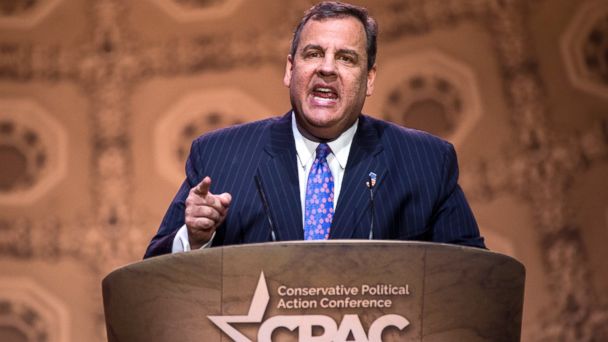
With the exception of Rand Paul's maneuvering (as laid out in painful detail above), Christie's tactics have been the most remarkable: He has said almost nothing. He did not mention "Russia," "Ukraine," "Putin," "Crimea" or "weakness" - all five of them favorites among his fellow Republicans - during his speech at CPAC last week or during his time in Washington during the Republican Governors Association's annual conference in Washington two weeks before. The New Jersey governor, 51, and chairman of the RGA left the gathering early, before a chance to visit the White House and meet the national press, to celebrate his daughter's birthday and prep for a state budget speech.
Money quote: "We need to make sure that when we say we are for America being a leader in the world and we are for a strong national defense, not one that allows other countries to run us over all over the world." To CPAC, March 6 - to date, his only notable allusion to the crisis in Ukraine .
Rep. Paul Ryan
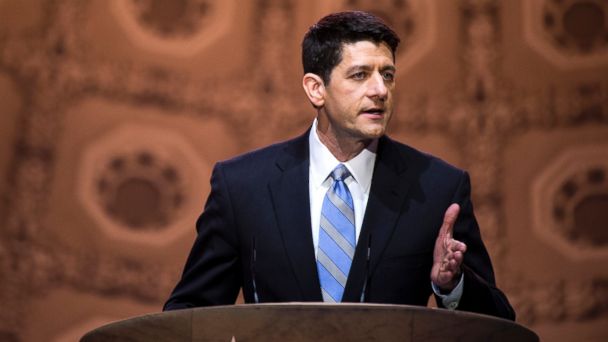
The Wisconsin congressman also favors sanctions, particularly "upping our exports of natural gas to the region." In that vein, he spent much of the weekend on radio and cable pushing for official approval of the long-debated Keystone XL Pipeline. Ryan, 44, argues that taking steps toward energy independence and the ability to sell U.S. oil and gas abroad would give the U.S. leverage in dealing with states caught between Russia and the West. He also wants to boost the defense budget, which has been cut along with social spending in an effort to curb the deficit, and bring back the controversial Eastern European missile-defense program.
Money quote: "I think you could charitably describe the past 'reset' policy as naïve, wishful thinking." CBS, March 9